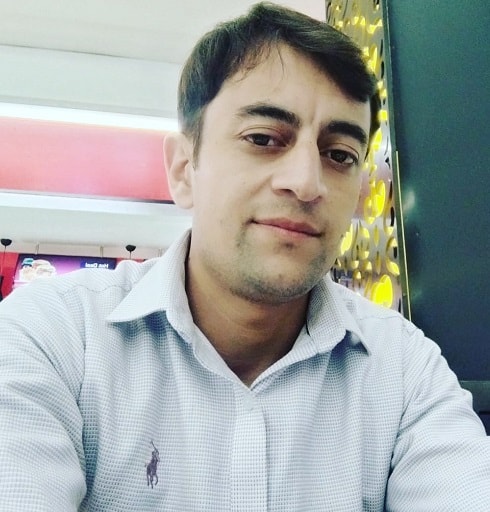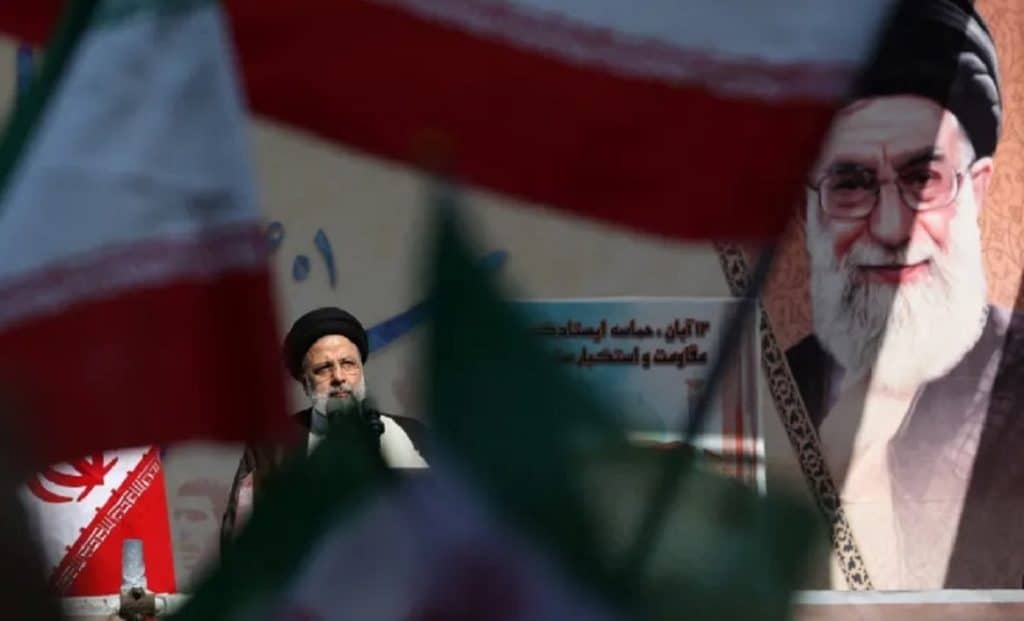By Syed Ahmed Ali Shah
Iran has been riven by political upheaval and strife for many years, with numerous organisations and factions vying for power and influence.

Protests have rocked the country, repeatedly causing unrest and bloodshed, including protests, bombings, and targeted killings. In addition to sectarianism, protests by pro-democracy and women’s groups have also contributed to the country’s broader unrest. The latest crisis has emerged from sectarian tensions that have arisen against the backdrop of the brokered peace between Iran and Saudi Arabia. At a time when peace talks signalled a regional reset between the two nations, incidents of sectarian killings and unrest in Sistan Balochistan have deepened the rifts that the Saudi-Iranian agreement indirectly pledged to resolve.
In recent days, there have been several high-profile cases of violence and targeted killings in Iran. Ayatollah Abbas Ali Suleimani, a prominent Iranian Shiite cleric, was shot dead in the northern province of Mazandaran in the last week of April. Suleimani was a member of the Assembly of Experts, an 88-person theological chamber that oversees and appoints the Supreme Leader of the Islamic Republic. He previously served as Supreme Leader Ayatollah Ali Khamenei’s representative in the volatile southeastern province of Sistan and Balochistan. Iranian officials have often blamed the United States and Israel for the country’s political destabilisation and bloodshed, including the recent executions of dissidents and protesters. Iranian authorities routinely accuse the United States and Israel of sponsoring and funding opposition groups and dissidents in Iran, as well as attempting to destabilise the Iranian regime through covert operations and other ways. Iran has also been a major supporter of the Gazans, and recent tensions between Israeli forces and Gaza accelerate regional tensions.
Numerous incidents of violence and casualties have occurred in Iran in recent years, including a series of attacks on military and nuclear sites. Iranian officials have blamed Israel for the attack and promised retaliation. Executions and human rights violations against political dissidents and ethnic minorities, especially Kurds, have also been reported. The reasons for the escalation of violence and killings in Iran are complex and multidimensional, making it difficult to pinpoint a single source. Political conflicts, economic difficulties, and religious and ethnic divisions are all clearly significant. In addition, the involvement of foreign powers and their agendas in the region has exacerbated the conflict.
Despite the difficulties, the Iranian government seems committed to a more peaceful future for the country and has made efforts with neighbouring nations and friends as part of its border strategy to increase its regional influence and offset the impact of U.S. sanctions and other pressures, and address the actors playing in the country. According to reports in the Economic Times of India, NSA Ajit Doval visited Tehran on Monday at the invitation of his Iranian counterpart Ali Shamkhani. Doval met with Iranian Supreme National Security Council (SNSC) Secretary Shamkhani and Khamenei to discuss regional and international issues of mutual interest. According to an Iranian news agency report, Shamkhani stressed that the launch of the financial transaction system using the currencies of Iran and India would be an important step toward the realisation of common goals in the economic field, where the Shanghai Cooperation Organization (SCO) and BRICS can also be effective in light of global geopolitical changes.
The steps were recently taken by Iran to improve relations with Gulf Arab nations such as Qatar, Oman, and Saudi Arabia, with which it has had tense relations in the past. Iran has sought to establish economic and diplomatic connections with these countries in order to expand its regional influence and mitigate the impact of US sanctions. However, the US has expressed concern about Iran’s growing regional influence and support for proxy groups. The US regards these as destabilising factors that could endanger its regional allies, such as Saudi Arabia. Furthermore, China’s growing involvement in the Middle East has complicated the region’s geopolitical dynamics. China has tried to develop its economic and strategic interests in the region, especially through the Belt and Road Initiative, as well as to strengthen connections with Iran and other regional entities. Iran’s efforts to improve relations with Gulf Arab states represent a significant shift in the country’s foreign policy towards greater regional engagement. These initiatives are motivated by both economic and strategic reasons, as Iran aims to play a more prominent role in the area and address long-standing tensions and conflicts. The recent negotiations between Iran and Saudi Arabia represent a step forward towards greater regional cooperation and stability, but the path ahead is likely to be complicated and plagued with difficulties.
Iran’s efforts to improve connections with neighbouring countries reflect the country’s goal of playing a larger role in the region and offsetting the impact of external pressures on its economy and political system. However, the success of these efforts will be determined by a number of factors, including the attitudes and policies of neighbouring countries as well as broader regional dynamics and geopolitical considerations. The Iranian government could prioritise efforts to create a more open and participatory political system that supports human rights and social cohesion. In addition, addressing economic disparities and providing opportunities for marginalised groups can help alleviate some of the grievances that lead to violence and unrest. It is critical to hold individuals, including government officials, security personnel, and non-state actors, accountable for violence and human rights violations. In addition, Iran should remain vigilant against foreign interference and work to reduce regional tensions through dialogue and peaceful means.
Deepening ties with China and Iran’s bold rapprochement with the Saudis only strengthen its regional ambitions, which will always be viewed with suspicion by Israel and the United States. There is no easy solution to its internal or sectarian problems, but the situation can potentially be resolved in light of an honest dialogue with Saudi Arabia and China. The suspicion factor may persist, but given the challenges Iran faces, Tehran must engage in dialogue with its allies and potential friends in the region.Syed Ahmed Ali Shah. MS IR
Author: Syed Ahmed Ali Shah – Muslim Youth University, Islamabad, MS International Relations scholar. His research focuses on Pakistan-China-India-US triangular strategic relations in the 21st century. His research area also includes studies on South Asia, extremism and terrorism, foreign policy of great powers, and Gilgit-Baltistan studies. He writes in World Geostrategic Insights, Modern Diplomacy, Parliament Times, Daily Country News, and NewsMart.
(The views expressed in this article belong only to the author and do not necessarily reflect the views of World Geostrategic Insights)







